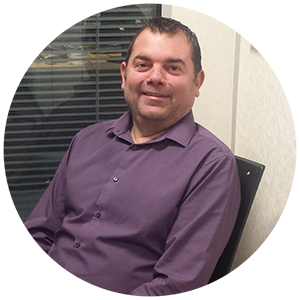“I became wary of social situations and was apprehensive that any noise would make my tinnitus worse. My sleep was disrupted by the tinnitus and I resorted to using sleeping tablets to help me get through the night.”
Although Richard works in a quiet environment, he has a history of recreational noise exposure, relating to clay-pigeon shooting. Unfortunately, he didn’t wear adequate ear defence regularly. Five years ago, he developed tinnitus after a shooting session. His condition slowly resolved over the course of a couple of years but then returned, spontaneously, early last year. After this second onset, Richard’s tinnitus was more prominent and very intrusive, especially in stressful conditions. He also found that his perception of sound altered at the same time.
“Everyday noises seemed disproportionately loud. I became wary of social situations and was apprehensive that any noise would make my tinnitus worse. My sleep was disrupted by the tinnitus and I resorted to using sleeping tablets to help me get through the night,” explained Richard.
Richard visited his GP and was told that there was nothing that could be done to cure the tinnitus he was experiencing. He was given an appointment to attend an Ear Nose and Throat Clinic, where a hearing test confirmed that he could not perceive certain sounds. Richard was advised to undergo Tinnitus Retraining Therapy at the hospital and, four months later, he was subsequently given a pair of sound generators and a couple of leaflets which explained the causes of tinnitus and gave advice on sleep techniques.
“The result of the TRT that I was given by the hospital was disappointing. I used the implants for about a month but they did not seem to do anything apart from mask the noise!”
In desperation, Richard searched the internet to try and find a specialist clinic that could offer some hope of treatment. He discovered The Tinnitus Clinic website and booked an appointment at the Altrincham practice.
Richard’s assessment revealed that he was suffering from bilateral high frequency atonal tinnitus, combined with clinically significant hyperacusis. This meant that he had tinnitus in both ears – which he heard in a range of tones – and that he had an abnormal sensitivity to environmental noises.
He was recommended a course of Tinnitus Desensitisation Therapy™ (TDT), in order to reduce the sensitivity and to stimulate tinnitus habituation; a ‘habitual state’, much like breathing, where the tinnitus doesn’t break through to conscious awareness.
“A significant proportion of patients with tinnitus experience the phenomenon of hyperacusis. As a result, everyday noises are perceived at a disproportionately high intensity. It’s as though somebody has turned an invisible volume control up to a very painful level,” explained Senior Audiologist, Rugina Begum
“It’s believed that tinnitus and hyperacusis are related and the result of hyperactivity within the auditory system, as a side-effect of hearing loss. Using desensitisation methods, the hyperactivity can be reduced to help normalise the perception of everyday noises and, in turn, the tinnitus becomes less invasive,” Rugina continued.
“Treatment for my hyperacusis spanned a six-month period. In January this year, tests revealed that the sensitivity that my ears were experiencing had virtually disappeared. This was a huge relief! During this session, my digital hearing instruments were re-programmed to closely match the tinnitus pitch. It’s only been a few weeks and I have already started to notice a difference. I am far less aware of my tinnitus and I feel much more in control,” explained Richard.
“I tend to wear my devices for the majority of the day at work, and for long spells I forget about the tinnitus and the fact that I’m wearing them,” Richard added.
“I’m enjoying social situations again and my ability to sleep has also improved. Over time, I believe that the treatment will lead to a complete habituation.”


